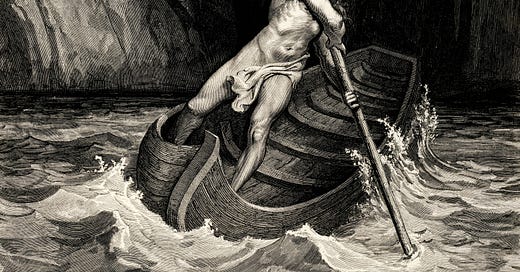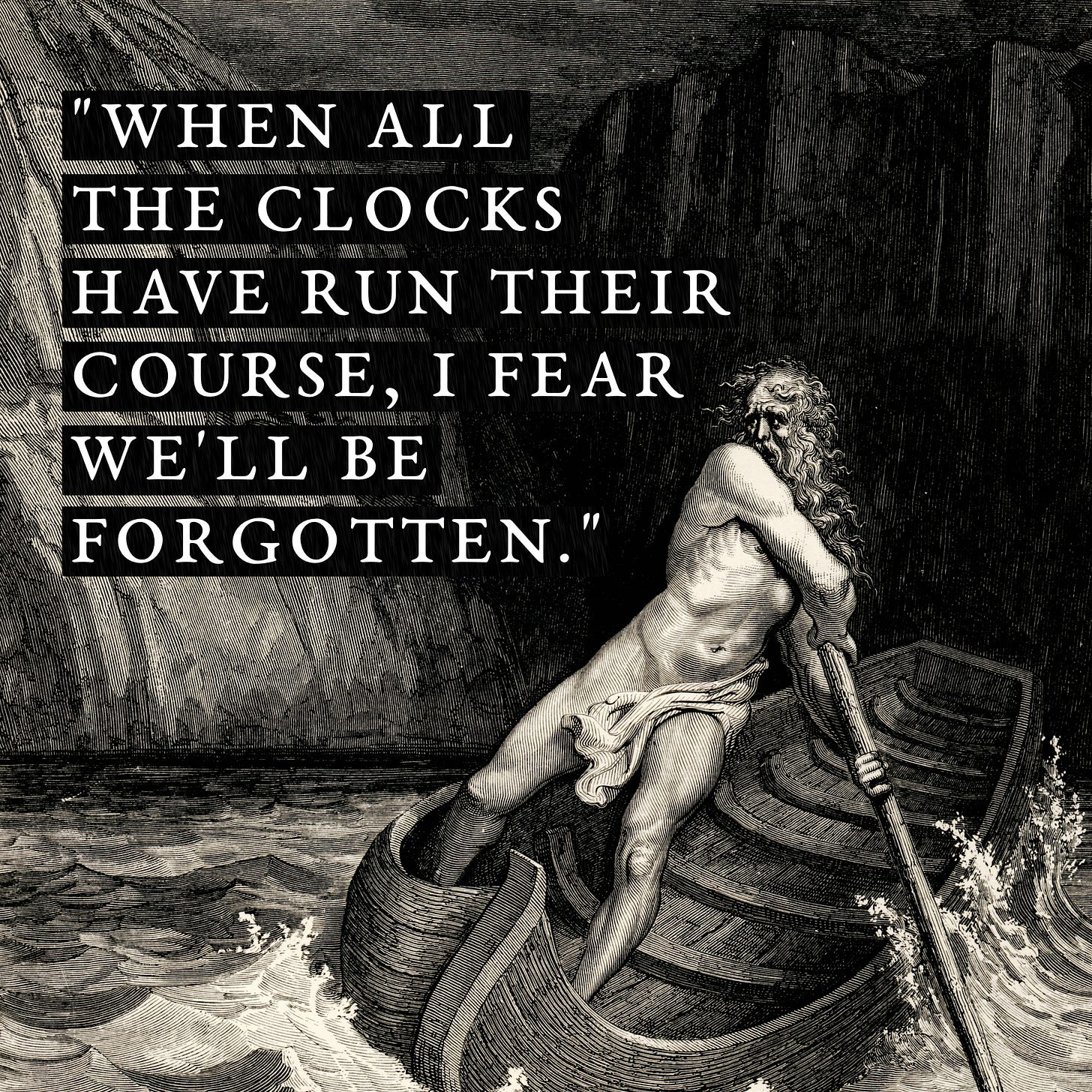“When All the Clocks Have Run Their Course, I Fear We’ll Be Forgotten.”
Into a pale cushion of pine
you topple,
terebinth of bone,
a lucent tree whose limbs,
barkless,
burn from the inside out,
chark-black as the eyes of Charon
where your half-stump reveals how hollow
your innards are,
how incapable you
to reach roots toward the girl
whose finger has drawn fine line
in the clay,
a tiny clough
the deluge of rainfall deepens
to coulee, sluicing coastward
as the patois of the tires—their passing
on the road—rumbles on without complaint.
And along the wending waterway
she flees
as Fortune's continuous malice
grinds a canyon from that creek,
(how many thousand years thrawing?)
bolstering the breach
that resists her return.
You can do naught to stop her fading steps
but bow and grope the garment's edge
of him who formed your deadfall stump;
raise your wretched orison;
petition;
plead;
manipulate
those bent branches to be
as palms pressed together,
tethering time
to halt time's harrowing.
Yet you cannot stop the coming
of winter,
her womanhood,
the canyon's attrition-edged creep
before it drags your deadwood
to the sea. The scarp,
with holy hewn scalloping
raked across ribs,
gives glory to forgotten hands.
The same that forge the supple sheets of ice
to drift
and dance
and bever,
wraithlike on the shoreline's popple waves. 





Daniel, I was drawn to the image of the fallen tree bleached and gleaming in the moonlight (though I suppose it could be sunlight too), and then I had to work a little harder for the other images. I was momentarily stuck on the girl tracing a line in the clay as a runaway, so that really threw me off track. The fact that Fortune was capitalized clued me in that these were symbols, so I went back and discovered the girl was the river winding her way through the clough. Then I was off and running again. The idea of winter being the river's womanhood is a bit chilling. Yet not necessarily damning womanhood I suppose since there is a yearly thaw. Does the river become a girl again every spring? I enjoyed the "patois of the tires" as a contrast, making the reader feel more strongly the pull to join the tree, and yet it is a wretched orison because the bare branches are not lifting in praise but scrabbling for purchase on the land. The river represents a loss of self or remembrance. I did not expect this. I first thought of the track the river cuts ever deeper as a kind of lasting tribute to the river and all who observed it. But this is too optimistic. The tree will not join the river willingly but lose its self or its consciousness when it is pulled in, so the anxiety of the title is fulfilled. The alliteration and rich vocabulary work with the strong images, making this one really fun to think through. Thank you!
This is a spectral and beautiful poem. Its sanctity as a truly sublime poem is haunting. There are a lot of words I don't know. It sounds beautifully and arduously crafted. Great job!